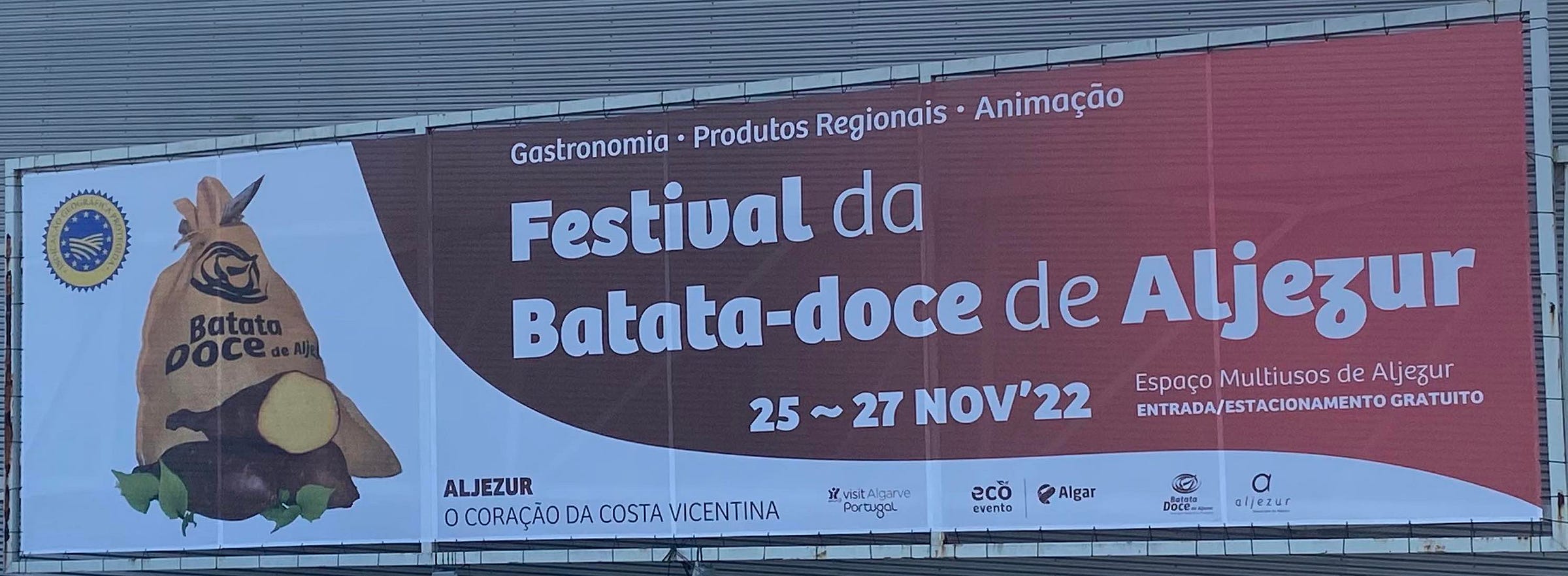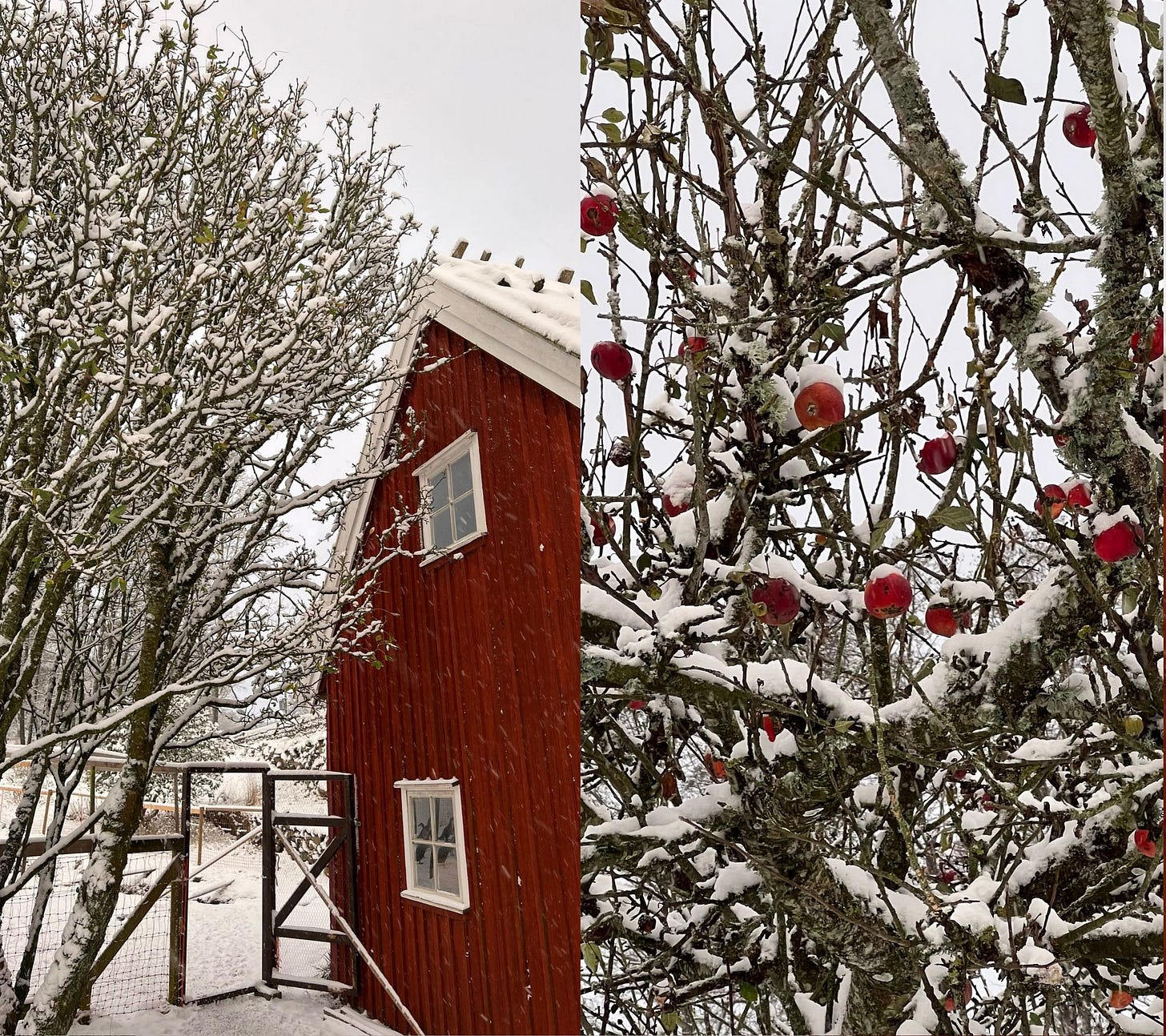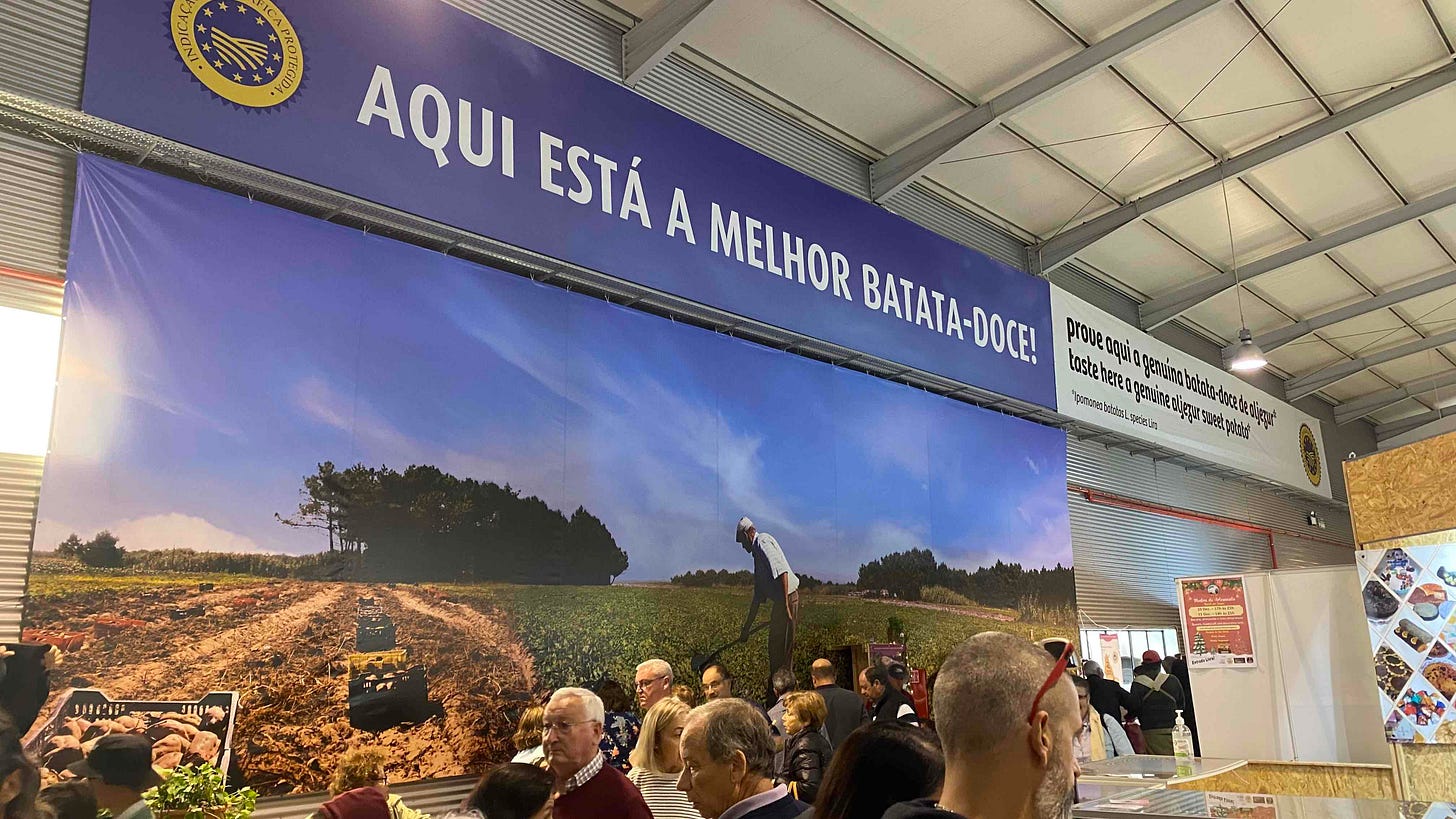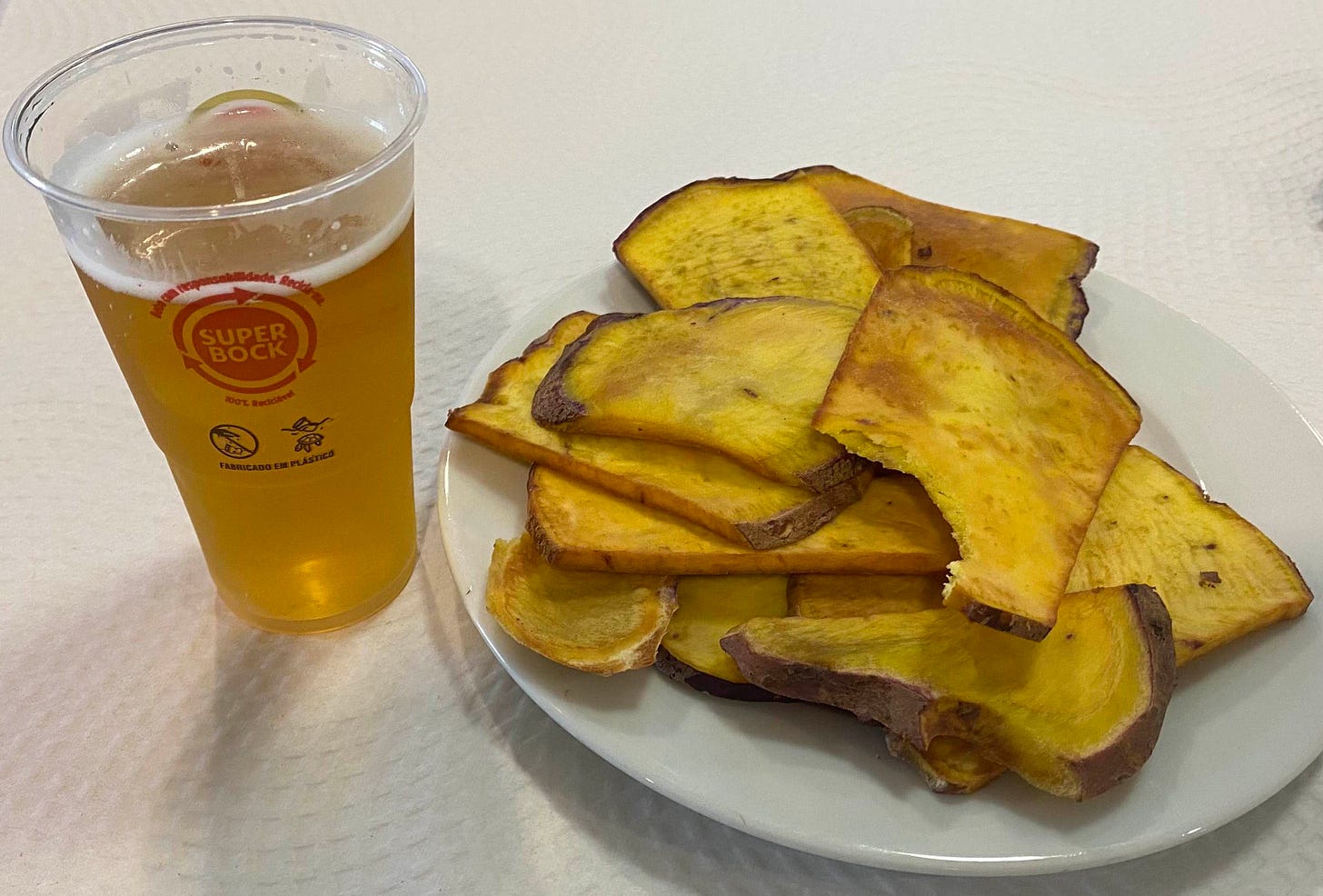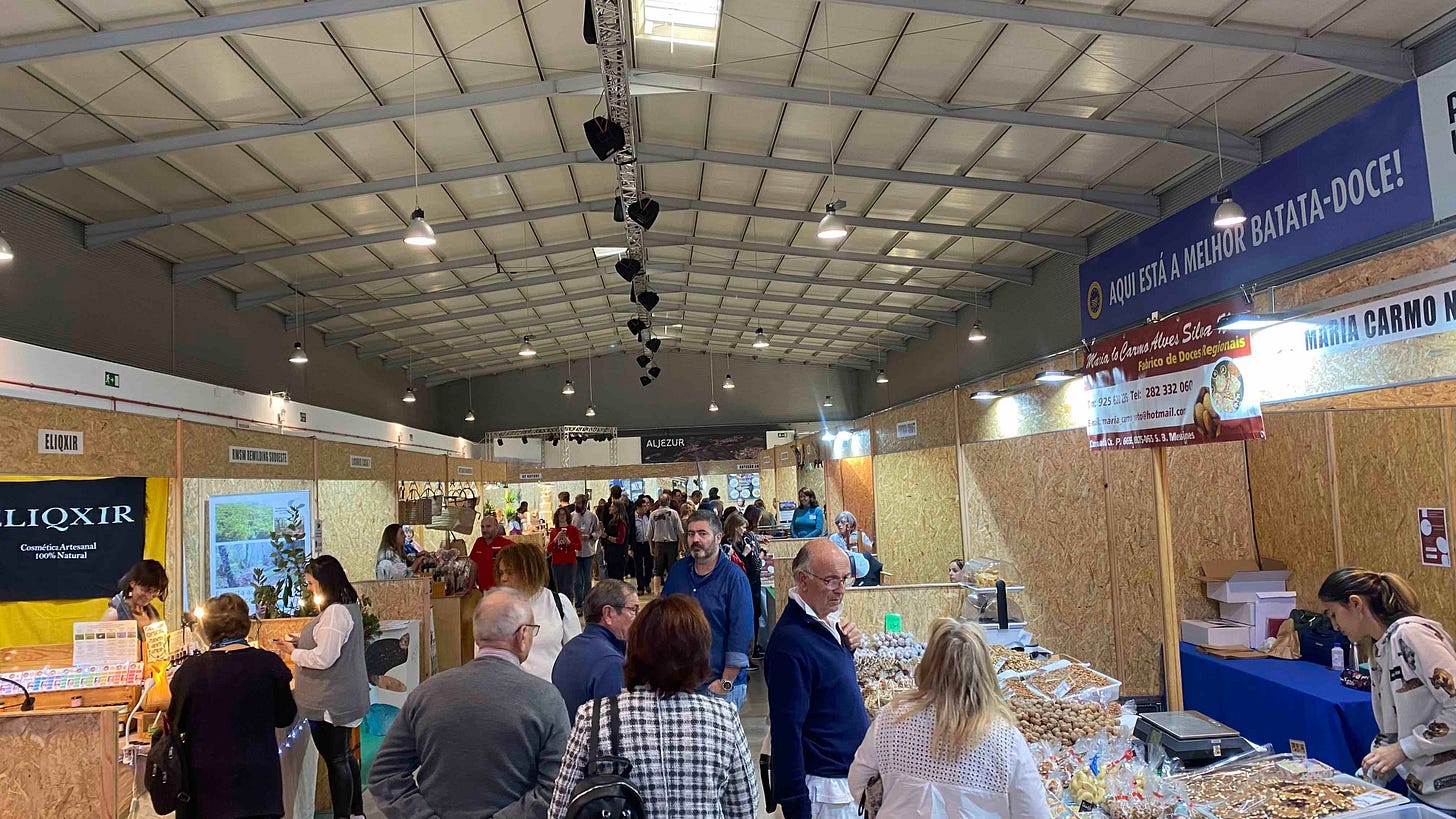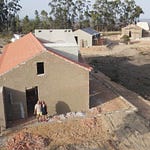Visiting a festival devoted to a surprising vegetable, but a lesson in just what our region is famous for from November 2022.
TRANSCRIPT…
Different people value many different things very differently, and it turns out one of those things in this part of the world is the sweet potato.
The humble batata-doce, as it’s known in Portuguese, enjoys a cult status worthy of celebration, police checkpoints and a lot of music.
I’ll admit I chuckled (and may even have mocked) the first time I saw signs advertising the annual Sweet Potato Festival in Aljezur – a lovely little town half an hour south of us over the border in the Algarve.
But it turns out there’s more to this place than the last Moorish castle to fall to the Crusaders in 1249, the amazing beaches and the weird story of its disappearing river...but more of that later.
I jokingly pondered just how much fun a sweet potato festival could possibly be, but then found myself driving south with an open mind and a stomach making the rumblies that only batatas-doces could satisfy.
The things you do when your wife has gone to Sweden for two weeks and even the dogs are getting bored of the conversation.
To be fair, I have been making a lot of progress with my podcast editing, and we would probably have gone to check out the festival together anyway.
There were policemen on every corner directing traffic away from the already heaving showgrounds – and it was only 3pm.
Just like our big fair in São Teotónio in the heat of summer, a line of tractors of various sizes and price-tags lined the entrance to the giant marquee: this was, not surprisingly, going to be heavy on agriculture.
There was much hubbub inside: a magician was on stage entertaining the kids and I headed straight for the “eating potatoes” section, rather than the “learning about potatoes” area, or the “have your tried our peanuts” zone.
I had no idea what to ask for, or at least how they are served and what you eat them with and panicked, pointed at someone else’s table and waited for a beer and a dose of doces to be delivered.
Thanks for reading Off-grid and Ignorant in Portugal! Subscribe for free to receive new posts and support my work.
✓
Apparently Aljezur provides the perfect growing conditions for the lyra variety of sweet potato, which according to some people who know things about food, has “a white pulp that turns yellow when cooked, a skin ranging from orange to purple, and a very sweet taste.”
“Being very firm and with less moisture, Lyra is a variety that can be stored for longer periods and holds shape after being cooked,” it goes on.
I’ve always liked a sweet potato – particularly the orange ones – I’d say my favourite meal growing up was dad’s breaded chicken breast, sweetcorn and sweet potato.
They are extremely good for you.
“An excellent source of beta carotene, vitamin C, and potassium,” it seems, while also rich in fibre and with a relatively low glycemic index, whatever that is when it’s at home.
And Lyra – if I can call her that – is apparently unique to this stretch of Portugal’s Atlantic coast from Aljezur up to Vila Nova de Milfontes with an EU classification of Protected Geographical Indication – a bit like you get with wine, champagne and pre-Brexit Cornish pasties.
So it’s not just Aljezur that should be celebrating – we all should, and we should all get some of the little blighters into the soil in the Spring so we can have our own sweet spud festival in the Valley next November.
This explains the great excitement the other week when Carlos the Landscaper presented us, with a grin, two giant specimens he had liberated from his father’s field.
“Leave them for a week or two until they get really sweet,” he winked. It’ll have to wait another week now until Ana gets back, but apparently they need some time out of the fridge to reach perfection.
My plate of sauce-less fried sweet potato discs arrived, looking nothing like the one on the other table I’d pointed at, but damn they were good with some recommended mustard and mayonnaise.
I picked up on a hint of chestnut – once the staple food here in Portugal and also celebrated this time of year.
The myth in Aljezur is the Knights of Santiago were fuelled by sweet potatoes when they overran the castle on the hill in 1249 after centuries of Moorish rule.
But given that these well-travelled tubers originated in South America, and it was the 1500s before Portugal’s explorers returned from there, it fails the test of timeline.
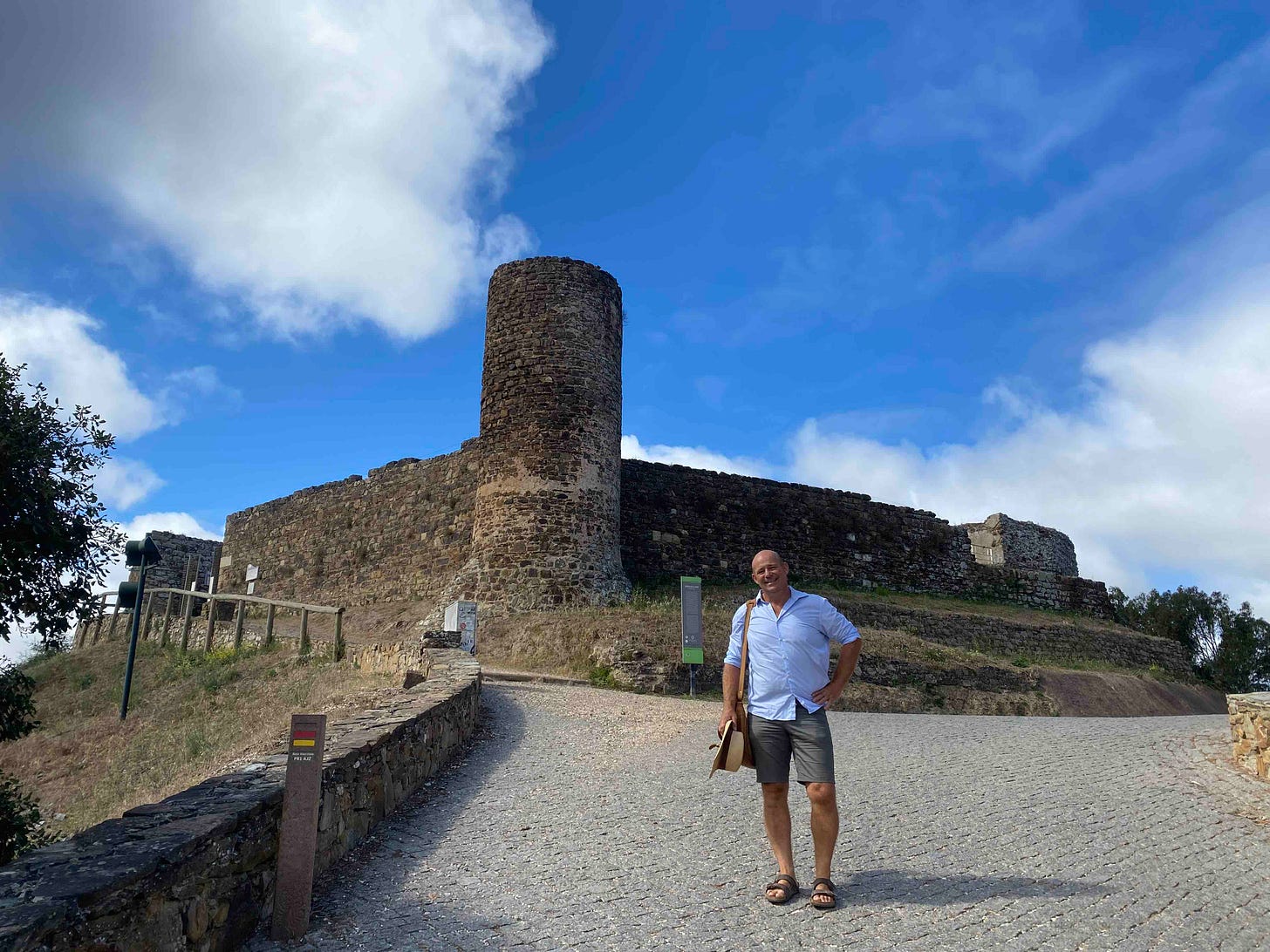
Aljezur is Arabic for island...and it’s not...but the local museum dates the end of its time as a major coastal port and the retreating of the river to the 1755 earthquake which was caused by an undersea fault.
Destruction by the earthquake and tsunami led to the building of the Igreja Nova (New Church) neighbourhood of town where the festival site sits.
Rumblies sated, I was energised to wander the many stalls selling everything from woven baskets to essential oils, from soap stands to nut counters, and of course the vast sweet potato presentation table.
I considered the 5kg bag of giants, but settled on 2kgs of the smaller ones, and then discovered there was so much more you could do with a sweet potato.
I’ve tried one of the two melhores bolos (best cakes) the woman behind the counter couldn’t decide which to recommend the most…and sold me both.
I’ll have the slice of cheese and sweet potato cake for dessert today I think.
I didn’t find any batata-doce booze, but then there is a lot of fiery medronho around here which does that job rather well (and the strawberry tree fruit isn’t really used for anything else).
It is a thing apparently – there’s a place up the coast which makes sweet potato vodka and Japaneses shōchū (as opposed to sake) which often uses batatas-doces. One for our friend Niels to try next perhaps?
I left before the music started and before the sun had set, but with a new-found knowledge and respect for sweet potatoes and a terrible guilt that I ever questioned their festival credentials.
My only regret is missing this year’s peanut festival in nearby Rogil – celebrating the amendoim harvest at the end of October (not to be confused with the amendoa harvest of almonds) – now that would have been nuts.



